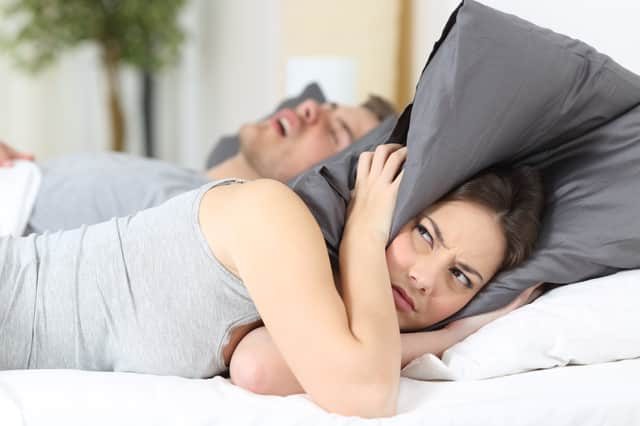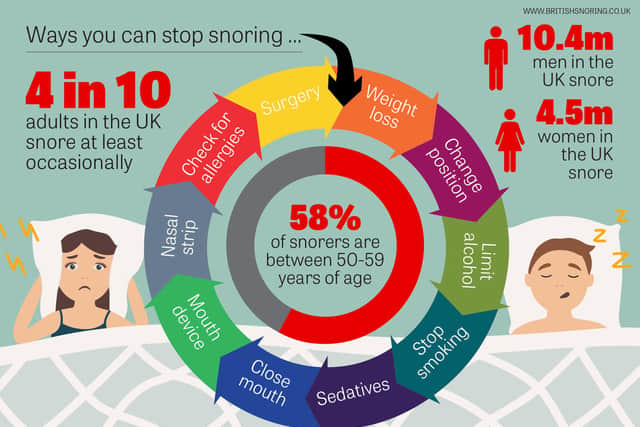Top tips on how you - or your partner - can stop snoring


Four in ten people in Britain snore - and many others have to put up with the resulting noise and lack of sleep.
But how can you stop? To mark National Stop Snoring Week, we've highlighted some of the things that can make a different, from cutting down on booze to stopping smoking.
Advertisement
Hide AdAdvertisement
Hide AdSnoring is caused by vibrations of the soft palate and other tissues of the mouth, nose and throat due to the upper airway being partly blocked. When we are awake our muscles keep the airway open. When asleep we lose 'muscle tone' and the airway narrows.


Other options to give you and your partner a more peaceful night's sleep are nasal strips, checking for allergies, changing sleeping position and weight loss.
According to the NHS, you're most likely to snore if you:
are overweightsmokedrink too much alcoholsleep on your back
Health experts say people should avoid taking sleeping pills to help as these can sometimes cause snoring. Instead, the NHS advice is try to lose weight if you need to; sleep on your side – try taping a tennis ball to the back of your sleepwear, buy a special pillow or bed wedge to help keep you on your side; and consider asking your partner to use ear plugs if your snoring affects their sleep.
Could association's test help you?
The British Snoring and Sleep Apnoea Association says there are approximately 15 million snorers in the UK, with snoring affecting 30 million people.
Advertisement
Hide AdAdvertisement
Hide AdThe ratio of male to female snorers is 2.3 to one, with 10.4 million males and 4.5 million females who snore. Figures from a recent survey found men are louder snorers than women.
The association has also launched an online snoring self-diagnosis tool which has been used by nearly half a million people. The test identifies the cause of people's snoring and suggests solutions to their problem.